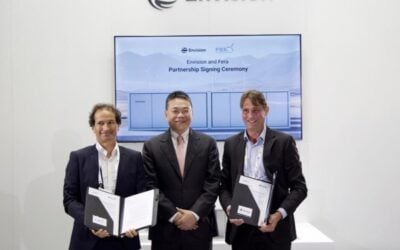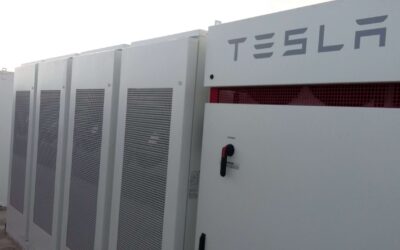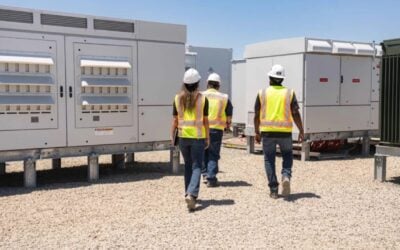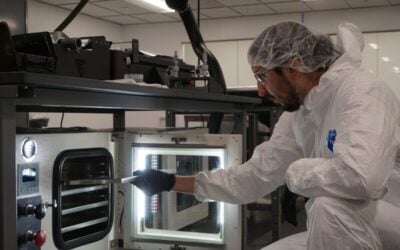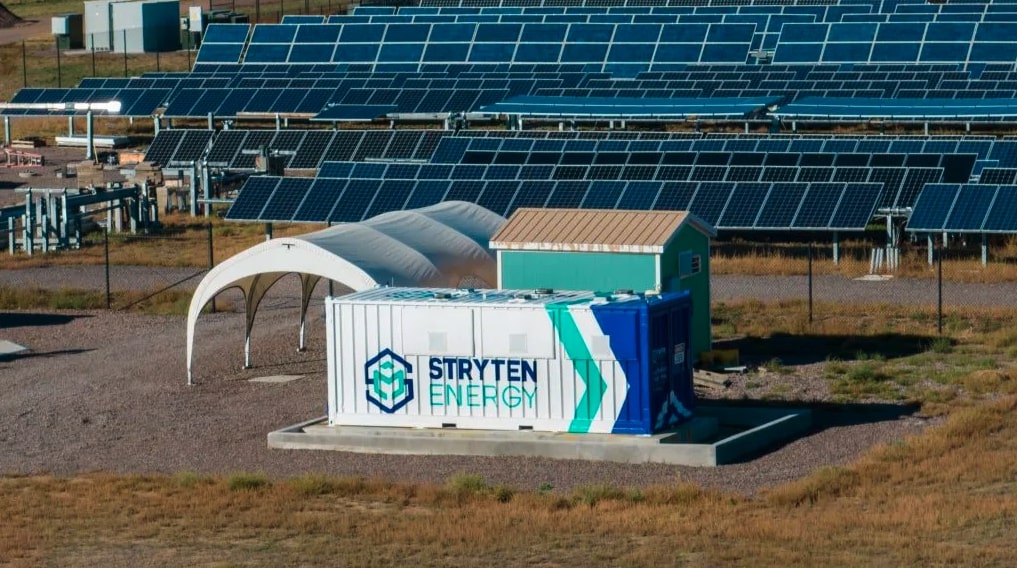
Flow battery firms Stryten Energy and CMBlu Energy have made moves to accelerate the commercialisation of their products in the US this week.
Georgia-based Stryten Energy yesterday (10 January) announced a partnership with local co-operative electric utility Shipping Shoals EMC to demonstrate its vanadium redox flow battery (VRFB) technology and evaluate ideal use cases.
Enjoy 12 months of exclusive analysis
- Regular insight and analysis of the industry’s biggest developments
- In-depth interviews with the industry’s leading figures
- Annual digital subscription to the PV Tech Power journal
- Discounts on Solar Media’s portfolio of events, in-person and virtual
On the same day, CMBlu Energy announced plans to work with utility and industrial customers to deploy medium and long duration energy storage projects using its Organic SolidFlow VRFB product in the US by 2025.
CMBlu is based in Frankfurt, Germany, and its flow battery technology uses an aqueous electrolyte solution made from recycled organic materials.
Both companies are amongst a handful of flow battery firms across the globe today trying to scale up production and chip away at lithium-ion’s dominance of the battery storage market today.
Stryten and Shipping Shoals EMC’s partnership will demonstrate “…the technology for energy storage and deployment uses and evaluate where the technology will provide the maximum benefits”.
Scott Childers, vice president of Stryten Energy’s Essential Power Division, said: “Stryten Energy’s collaboration with Snapping Shoals will provide deeper understanding of how our VRFB technology operates in real-world conditions. By testing the battery energy storage system against a variety of usage needs, we can identify where it can make the most impact for energy providers.”
Stryten said its vanadium electrolyte is domestically sourced and easily recycled, has increased power density and reduced battery downtime, potentially limitless cycle life, is thermally safe and scalable to meet varying energy storage needs.
The firm was one of several which praised the passing of the Inflation Reduction Act in August in comments to Energy-Storage.news, saying the standalone investment tax credit and 10-year runway would help accelerate customer adoption of VRFBs.
CMBlu for its part plans to make its first-generation modular energy storage systems available for field testing with a select number of US energy customers throughout this year. Founder and CEO Peter Geigle said the decision to expand into the US was based on several factors and cited the Inflation Reduction Act as a key driver of growth in the US market.
“Compared to Germany and the rest of Europe, the US is clearly marching ahead in the development and application of large-scale storage solutions. In the Los Angeles area alone, there are already more battery storage projects than in all of Europe,” he said.
“We want to support this market transformation and, once our products gain acceptance, are fully committed to a US manufacturing presence, which builds upon a robust R&D and manufacturing capability of more than 160 employees already in Germany.”
In June 2022, the company struck a long-term research and pilot project agreement with an Austrian utility to test its tech, covered by Energy-Storage.news at the time. That came shortly after its Austria-based flow battery peer CellCube similarly established a US subsidiary last year in order to commercialise its products there.
Energy-Storage.news’ publisher Solar Media will host the 5th Energy Storage Summit USA, 28-29 March 2023 in Austin, Texas. Featuring a packed programme of panels, presentations and fireside chats from industry leaders focusing on accelerating the market for energy storage across the country. For more information, go to the website.

